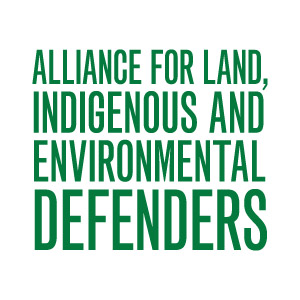leaders network
for environmental
activists and
defenders
Championing Recognition, Participation and Protection of Environmental Human Rights Defenders through High-Level Collaboration and Coordination
The Urgency of Protecting
Environmental Defenders
Environmental human rights defenders (EHRDs) are the driving force in advocating for the urgent actions needed to confront the multiple planetary crises. However, they are paying a high price for their leadership. Global Witness reports that at least 1,390 environmental defenders were killed between the 2015 adoption of the Paris Agreement and December 2022.
Moreover, as a report by the Alliance for Land, Indigenous, and Environmental Defenders (ALLIED) notes, this is just the tip of the iceberg in terms of threats to EHRDs, who are facing a troubling surge in violence, harassment, stigmatization, and the enactment of legislation aimed at criminalizing defenders and restricting their participation, particularly within the context of the climate emergency and energy transition.
Gaps and Challenges in the
Current Global Response
In recent years, there have been important positive steps at the multilateral level to respond to these repressive trends and increase recognition, participation, and protection of environmental defenders. Regional instruments such as the Aarhus Convention, Escazú Agreement have been adopted, and important actions to protect and engage EHRDs have been taken in multilateral fora, such as theUN Human Rights Council.
However, many of these efforts remain disconnected from one another, and much work is still required to promote a human rights-centred approach in forums dedicated to global environmental policy. The lack of coherent implementation of standards, compounded by restrictive measures at the national level, has exacerbated the threats faced by defenders. We firmly believe that concerted and strategic multilateral action to secure broader commitment by States to recognise, protect and promote the participation of defenders can, if implemented, complement and strengthen the necessary actions at the national and local levels.
Seizing the Moment for
Multilateral Action
There is a window of opportunity now to advance such decisive action at the multilateral level to promote the recognition, participation, and protection of EHRDs, and to work with States to ensure effective implementation. Over the last two years, a core group of EHRDs and civil society partners has convened a series of conversations and consultations with over 300 EHRDs, as well as with government representatives, human rights commissions, representatives of indigenous communities, UN special procedures and agencies, and civil society organisations (CSOs) working with defenders.
Participants expressed support for advancing a multi-stakeholder initiative to promote the recognition and participation of EHRDs at multilateral level as an integral part of their climate change, human rights, and development agendas. With Brazil’s presidency of the 2025 UN Climate Change Conference (UNFCCC COP 30), there arekey windows of opportunity to secure top-levelpolitical commitment to advancing the recognition,participation, and protection of EHRDs.
LEAD: An emerging Multilateral
Initiative
We accordingly propose to co-create a multilateral action-oriented Leaders Network for Environmental Activists and Defenders (LEAD), a collaboration space where leaders of governments, academia, media, multilateral institutions, and eventually the private sector can engage directly with environmental defenders, who are on the frontlines of the crisis, and with CSOs that support them.
LEAD will facilitate multi-stakeholder dialogue at the multilateral level with the shared goal of securing the recognition of defenders and strengthening their effective participation in these multilateral spaces, as a key strategy to increase their protection and reduce violence against them.
OUR PATH FORWARD
In collaboration with leading governments, we have hosted several discussion sessions during 2023 and 2024, and convened dozens of consultations with defenders to discuss a number of important topics involving the LEAD initiative. These events and activities contributed to the further refinement of the LEAD initiative, which we aim to formally launch at UNFCCC COP30 in November 2025. As we approach COP30, we will continue working closely with the Government of Brazil and other global champions to bridge the climate and human rights sectors, generating momentum for urgent multilateral action to protect EHRDs and the communities they represent.
our partners

